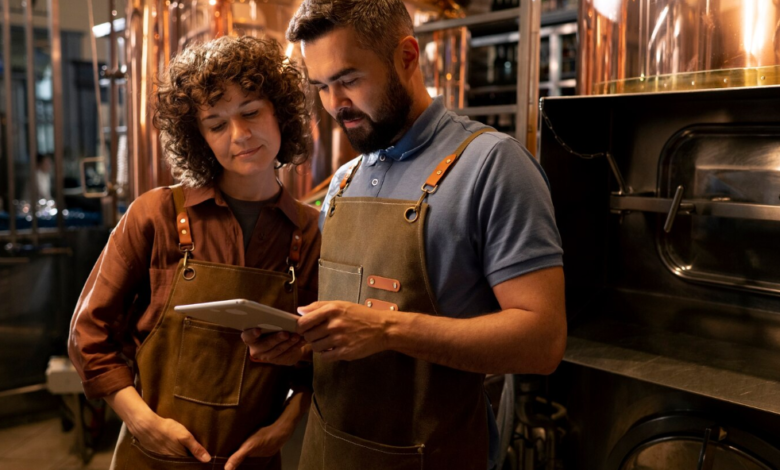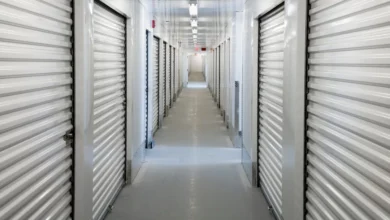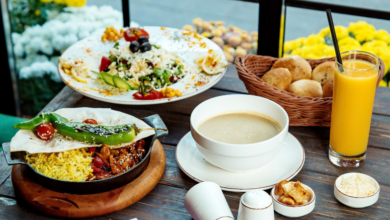Boutique Wineries Explained: Why Small Producers Are Changing the Wine Scene

Defining Boutique Wine
When you hear “boutique wine,” you might picture fancy bottles or exclusive shops. It’s more than that. It’s about passion and individuality. Boutique wine is the result of a winemaker’s vision, made in small batches with careful attention.
Characteristics of Boutique Wineries
Boutique wineries are usually small, often family-run. They make fewer than 10,000 cases a year, sometimes just a few hundred. This lets them control quality in a way bigger operations can’t. They focus on quality, hand-picking grapes and experimenting with techniques. You’ll find unique wines you won’t see in regular stores.
Differences from Large-Scale Production
Large wineries aim for consistency. They want their wine to taste the same every year. Boutique wineries embrace vintage variations. They work with what nature gives them, making wines that show the terroir and the year. Here’s a quick comparison:
| Feature | Large-Scale Wineries | Boutique Wineries |
| Production Volume | High | Low |
| Consistency | High | Varies by Vintage |
| Focus | Mass Appeal | Unique Expression |
| Grape Sourcing | Wide | Specific, Often Estate |
The Essence of Craft Winemaking
Craft winemaking is about more than just making wine; it’s about creating something special. It’s about the winemaker’s personal touch and the story behind the bottle. It’s about connecting with the land and the grapes. Boutique wineries embody this spirit. They’re not just making wine; they’re crafting an experience.
Boutique wineries often have a deep connection to their land and community. They prioritize sustainable practices and ethical sourcing. This commitment to quality and integrity sets them apart in the wine world.
The Art of Small-Batch Winemaking
When you get into boutique wine, small-batch winemaking isn’t just a way to make wine; it’s where what you know meets what you can do, and old ways meet new ideas. Let’s see what makes this so special.
Meticulous Attention to Detail
In boutique wine, every single grape matters. Seriously.
Small-batch winemakers get to really focus on every little thing during winemaking. From when the grapes first appear to when the wine is bottled, they watch and change things as needed. This careful attention is what makes boutique wines so good and different.
This means:
- Picking grapes at just the right time, sometimes going through the vineyard more than once.
- Checking each bunch of grapes, only using the best ones for the wine.
- Watching the temperature and yeast closely during fermentation to get the flavors and smells just right.
Small-batch winemaking is risky. One mistake can mess up a lot of the wine for the year. But that’s what makes it exciting for boutique winemakers. It makes them keep trying new things and learning to make better wine.
Crafting Unique Flavor Profiles
Boutique wineries aren’t trying to make the same wine every year. They want to make something special that shows where it came from and what the year was like. This means they might:
- Use different kinds of grapes that you don’t usually see.
- Try new ways of fermenting the wine.
- Age the wine in different kinds of barrels to add interesting flavors.
Here’s a simple table showing how different oak types can affect wine flavor:
| Oak Type | Flavor Notes |
| French Oak | Vanilla, spice, subtle tannins |
| American Oak | Coconut, dill, bolder vanilla |
| Hungarian Oak | Toasted bread, spice, firm tannins |
Balancing Tradition and Innovation
Boutique winemaking often means going back to old-fashioned ways. While new technology is helpful, many boutique winemakers like to do things the old way. This could mean:
- Picking grapes by hand instead of using machines.
- Crushing grapes with their feet to get the juice out gently.
- Using gravity instead of pumps to move the wine.
- Aging wine in small oak barrels, picking the right kind of oak and how toasted it is.
These methods take more work, but they let the winemakers have more control and make better wine. It’s not about being fast; it’s about making something great.
Terroir’s Influence on Boutique Wines
Expressing Unique Landscapes
Terroir, that fancy French word, is super important when we’re talking about boutique wines. It’s basically the idea that a wine’s flavor is shaped by where it’s grown – the soil, the climate, the whole shebang. Boutique wineries really lean into this. They’re all about showing off what makes their little corner of the world special. Think of it like this: a big winery might try to make a wine that tastes the same every year, no matter what. But a boutique winery? They want you to taste the place, the year, everything.
Vintage Variations and Authenticity
Because boutique wineries are so focused on terroir, you’re gonna see more variation from year to year. One year might be hot and dry, another cool and wet. That’s going to change the grapes, and it’s going to change the wine. Some people might see that as a problem, but boutique winemakers see it as a feature. It’s what makes each vintage unique and authentic. It’s like, you’re not just drinking wine, you’re drinking a snapshot of a particular year and place.
The Role of Soil and Climate
Soil and climate are the biggies when it comes to terroir. Different types of soil – sandy, clay, rocky – will affect how the vines grow and what kind of flavors the grapes develop. And of course, the climate – how much sun, how much rain, how hot or cold it gets – is huge. Boutique wineries pay super close attention to all this. They might even have different blocks of vines planted on different types of soil, or facing different directions, to get the most out of their land.
Terroir is more than just dirt and weather. It’s the whole ecosystem, the history of the place, and the winemaker’s vision all rolled into one. It’s what makes each bottle of boutique wine a unique expression of its origin.
The Visionaries Behind Boutique Wineries
Passionate Winemakers and Their Stories
Boutique wineries? They’re not just about the wine; they’re about the people behind it. You’ve got folks from all walks of life – ex-finance guys, former techies, even academics – who chucked it all to chase their passion for winemaking. These aren’t your typical corporate types; they’re artisans pouring their heart and soul into every bottle.
They’re not afraid to take risks either. Think experimental grape varieties you’ve never heard of, fermentation techniques that sound like something out of a science lab, and blending methods that would make a traditionalist’s head spin. And the best part? They’re usually involved in every single step, from stomping grapes to slapping labels on bottles. It’s a hands-on approach that lets them keep a close eye on quality and make sure their vision comes through in the final product.
The Legacy of Family-Owned Estates
Family-owned wineries are a huge part of the boutique wine scene. Some of these families have been at it for generations, passing down traditions and knowledge like precious heirlooms. They’re not just making wine; they’re keeping a legacy alive. It’s pretty cool to see how they balance honoring the past with embracing new ideas. They’re like the guardians of regional winemaking, always striving to innovate while staying true to their roots.
Personal Involvement in Every Bottle
It’s not just a job for these winemakers; it’s a way of life. They’re out there in the vineyards, getting their hands dirty, tasting the grapes, and making decisions based on what Mother Nature throws their way. This personal connection to the land and the process is what sets boutique wines apart. You’re not just buying a bottle of wine; you’re buying a piece of their story.
Here’s a quick look at how that involvement breaks down:
- Vineyard Management: They’re the ones deciding when to prune, when to harvest, and how to care for the vines.
- Winemaking Process: From fermentation to aging, they’re making all the key decisions.
- Marketing and Sales: You might even find them pouring samples at a tasting event or answering emails from customers. They are the brand.
Navigating the Boutique Wine Market
Economic Challenges for Small Producers
Boutique wineries face a unique set of economic hurdles. Limited production volume often translates to higher per-bottle costs, making it difficult to compete with larger, mass-produced brands. They often struggle with:
- Higher production costs due to manual labor and small-scale equipment.
- Limited access to capital for expansion or marketing.
- Vulnerability to weather-related crop losses.
The financial tightrope that boutique wineries walk is impressive. They balance passion and quality with the realities of a competitive market, often relying on creativity and direct engagement to stay afloat.
Building Brand Awareness and Credibility
For a small winery, getting noticed is tough. It’s not enough to just make great wine; people need to know about it! Here are some common strategies:
- Participating in local wine festivals and tastings.
- Collaborating with restaurants and wine shops for featured selections.
- Seeking reviews from wine critics and bloggers.
Direct-to-Consumer Strategies
Cutting out the middleman can be a game-changer for boutique wineries. Selling directly to consumers allows them to keep a larger share of the profits and build personal relationships with their customers. This can be achieved through:
- Establishing a wine club with exclusive benefits.
- Hosting on-site tastings and tours.
- Offering online sales and shipping, making it easier for customers to find the best place to buy wine online.
Innovation and Sustainability in Boutique Winemaking
Experimental Techniques and Grape Varieties
Boutique wineries are really cool because they aren’t afraid to try new things. You’ll see them experimenting with grape varieties that you’ve probably never even heard of, and they’re always testing out different winemaking techniques. It’s all about finding that unique flavor profile that sets them apart. For example, some wineries are playing around with amphorae aging, which is an ancient technique that can add a really interesting texture to the wine. Others are exploring carbonic maceration, which can create lighter, fruitier wines. It’s a constant process of discovery, and that’s what makes it so exciting.
Embracing Eco-Friendly Practices
Sustainability is a big deal for boutique wineries. They often see themselves as stewards of the land, and they’re committed to minimizing their environmental impact.
Here’s a few things they do:
- Organic viticulture: No synthetic pesticides, herbicides, or fertilizers.
- Biodynamic farming: Treating the vineyard as a self-sustaining ecosystem.
- Water conservation: Implementing efficient irrigation systems.
Boutique wineries often engage in community sustainability initiatives. This includes participating in local conservation projects, educating visitors about sustainable wine production, and collaborating with other local producers on sustainability efforts.
Future Trends in Artisanal Production
Artisanal wine production is heading towards even more focus on minimal intervention and hyper-local sourcing. Think more wineries embracing native yeasts, reducing or eliminating sulfur additions, and really digging into the specific terroir of their vineyards. We’re also likely to see more collaboration between wineries and other local artisans, creating a whole ecosystem of craft products. Consumers are increasingly interested in the story behind the wine, and boutique wineries are perfectly positioned to deliver that authentic experience. The future looks bright for those who are willing to embrace innovation while staying true to their values.
Global Footprint of Boutique Wineries
Old World Charm and Heritage
Old World wine regions, mainly in Europe, boast a rich history of boutique wine production. These areas often have strict rules and classifications that shape how wine is made. Think of Burgundy, France, where small, family-owned estates craft Pinot Noir and Chardonnay. Many vineyards are divided into tiny parcels, allowing for very specific expressions of the land. Or consider Priorat, Spain, a rugged area in Catalonia producing strong red wines from Garnacha and Cariñena grapes. Many wineries there are small and focus on quality.
New World Innovation and Diversity
New World regions, like those in the Americas, Australia, and New Zealand, bring a different energy to boutique winemaking. There’s more room for experimentation and less rigid adherence to tradition. You’ll find winemakers trying out new grape varieties, playing with different aging techniques, and pushing the boundaries of what wine can be.
- Napa Valley, California, is known for its bold Cabernet Sauvignons and innovative winemaking practices.
- Mendoza, Argentina, showcases high-altitude Malbecs with unique flavor profiles.
- Central Otago, New Zealand, produces world-class Pinot Noirs in a stunning landscape.
New World boutique wineries often focus on sustainability and eco-friendly practices, appealing to a growing consumer base that values environmental responsibility. They’re not afraid to challenge conventions and create wines that reflect their unique terroir and vision.
Regional Specialization and Identity
Boutique wineries often specialize in grapes or styles that are particularly well-suited to their region. This focus allows them to create wines that truly express the character of the land. For example:
- The Loire Valley in France is known for its crisp Sauvignon Blancs and elegant Cabernet Francs.
- The Mosel region in Germany produces delicate Rieslings with a distinctive minerality.
- Willamette Valley in Oregon specializes in Pinot Noir, showcasing the region’s cool climate and unique soil composition.
This regional specialization helps boutique wineries stand out in a crowded market and build a strong identity around their unique offerings.
Frequently Asked Questions
What makes a wine “boutique”?
Boutique wines come from small wineries. These places are often run by families or just a few dedicated people. They make only a small amount of wine each year, usually less than 10,000 cases. This lets them really focus on making top-quality wine, not just a lot of it. They often pick grapes by hand and pay close attention to every step of the winemaking process.
How are boutique wines different from big-brand wines?
Big wine companies try to make their wines taste the same every year, no matter what. But boutique wineries let nature lead the way. Their wines often taste a bit different each year because they truly show off the land and weather of that specific year. Each bottle tells a story about where it came from and the people who made it, giving you a special experience that’s all about that place and time.
Why do boutique wines often cost more?
Boutique wines usually cost more because they are made in small batches, which means higher costs for things like land, equipment, and labor. Also, since there’s not a lot of it, it becomes more special and sought after. People are willing to pay more for their unique taste, the story behind them, and the fact that they are often hard to find.
How do small wineries get people to know about their wines?
Small wineries don’t have big ad budgets like larger companies. So, they get the word out differently. They get good reviews from wine experts and magazines, work with people who influence others online, and enter wine contests to win awards. Many also sell directly to customers through their own websites or wine clubs, and they often team up with other small wineries to share ideas and market together.
Do boutique wineries care about the environment?
Yes, many boutique wineries care a lot about the environment. They often use eco-friendly ways to grow grapes and make wine, like organic or biodynamic farming. This helps them protect the land and make wines that are good for both people and the planet. They also try new things that can be more sustainable, showing their commitment to nature.
Who makes boutique wines?
Boutique wines are made by passionate people, often families, who truly love what they do. Some winemakers have been doing it for generations, passing down knowledge and traditions, while others left different jobs to follow their dream of making wine. They are deeply involved in every part of the process, from growing the grapes to selling the bottles. Their personal touch and unique ideas are what make each wine special.




